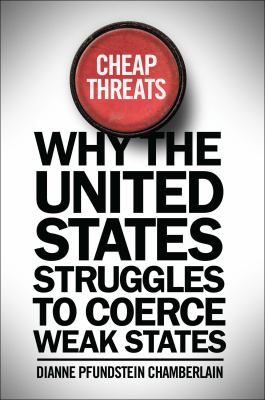
Book
|
Cheap threats : why the United States struggles to coerce weak states
-- Why the United States struggles to coerce weak states
Copies
2 Total copies, 2 Copies are in,
0 Copies are out.
Title
Cheap threats : why the United States struggles to coerce weak states -- Why the United States struggles to coerce weak states
Authors
Subjects
Language
English
Published
Washington, D.C. : Georgetown University Press, [2016]
Publication Desc
xii, 270 pages : illustrations ;
ISBN
9781626162822
(hardcover : alk. paper)
LCCN
2015025240
Dimensions
24 cm









